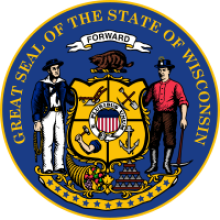Zoom Doctors and Online Church: Staying Healthy, Safe, and Connected in Chattanooga — Community Broadband Bits Podcast Episode 417

This week on the Community Broadband Bits podcast, Christopher talks to Deb Socia, President and CEO, and Geoff Millener, Senior Program and Operations Officer of The Enterprise Center in Chattanooga, Tennessee. Deb and Geoff share the breadth and depth of the work they’ve been doing recently to advance digital inclusion efforts and respond to the Covid-19 pandemic in ways that help the local community.
They tell Christopher about The Enterprise Center’s three-prong approach: the Chattanooga Smart Community Collaborative, which works to ensure that smart-city infrastructure is responsive to the needs of citizens; their work in the innovation district to help entrepreneurs build networks and create opportunities for getting access to capital; and finally, their Tech Goes Home initiative, which offers digital literacy courses and discounted hardware in pursuit of lowering the barriers to Internet access and inclusion.
Restaurants and churches around the country have been hit particularly hard by stay home orders and the other public health responses put into place to combat the transmission of the coronavirus, and Deb and Geoff describe the approach they’ve taken in Chattanooga. By finding trusted partners in local communities and leveraging their expertise and relationships with entities like EPB Fiber (the city’s municipal fiber network) Deb, Geoff, and their colleagues have helped small restaurant owners and church leaders get online and get the word out so that the local economy better weathers the storm and people can continue their faith traditions.
Finally, in this episode Christopher, Deb, and Geoff discuss the strides being taken in telehealth and telemental health in order to ensure more equitable opportunities and outcomes. They talk about the advantages to vulnerable populations, the potential savings to Medicare and Medicaid, and the wealth of opportunities for medical care related to aging in place, addiction recovery, palliative care, and removing the stigma of seeking mental health services.
See earlier coverage on The Enterprise Center and the work being done in Chattanooga by EPB Fiber.
This show is 37 minutes long and can be played on this page or via Apple Podcasts or the tool of your choice using this feed.
Transcript below.
We want your feedback and suggestions for the show-please e-mail us or leave a comment below.
Listen to other episodes here or view all episodes in our index. See other podcasts from the Institute for Local Self-Reliance here.
Thanks to Arne Huseby for the music. The song is Warm Duck Shuffle and is licensed under a Creative Commons Attribution (3.0) license.



